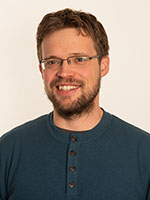Abstract
Tools like chatGPT can furthermore analyse code to discover errors, speculate about misconceptions that might lie behind such errors, suggest code improvements or suggest topics a human could look into in order to improve one's coding skills beyond those reflected in a code provided by a human to chatGPT.
This suggests that even given the same course learning aims as today, these tools may have the potential to improve student learning through scaffolding, elucidating misconceptions and more.
However, there might be a thin line between what tool usage is supporting learning versus shortcutting learning opportunities. At an even deeper level, the availability of such tools invites to rethink what the learning aims ought to be in the first place - that is, which skills are needed (or should be prioritised) for students from different fields in a world where such tools are available.
I will share some thoughts that we have discussed in various contexts - in connection with a large programming course at IFI (IN1000), in a network of introductory programming teachers at UiO, and in CCSE.
I will try to shed light on the many questions that arise. I don't see many clear answers yet, so my aim is rather to spur a discussion about opportunities, caveats, and not the least what we could concretely do to get wiser on how to relate to the daunting questions that we are suddenly facing.
Welcome!
Bio
Geir Kjetil Sandve is a professor at the Department of Informatics, UiO.
The bi-weekly ODD seminar series at CCSE
The Open Discussions on Didactics (ODD) is a seminar series on Mondays at 13:00-14:00 every other week (odd week numbers) at CCSE.
The seminar will be maximum one hour, often closer to half an hour. It is an informal arena to present and discuss learning theory, educational research and teaching experiences within computational science. To cater to the highly heterogeneous backgrounds and interests of students, teachers and researchers in our environment, we aim for seminars that introduce listeners to new ideas within a broad spectrum of aspects, and that invites reflection and discussion.
Presentations need not be mature and polished - to the contrary we hope that as many as possible wants to share undigested observations and reflections in short presentations of varied form and topics. We hope to have enough contributions to frequently have the meetings as lightning talk sessions, where three different speakers will each give a 5-10-minute presentation followed by discussion.
